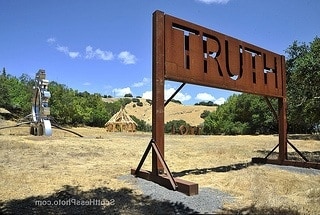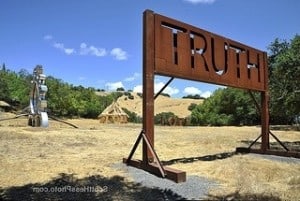Housed at the University of Southern California, the Institute for Advanced Catholic Study (IFACS) is led by Rev. James Heft, a Marianist priest. Before moving to USC in 2006, Fr. Heft was a professor and administrator at the University of Dayton. This September, IFACS is holding a conference at Dayton called “In the Logos of Love” that may be of particular interest to our readers who are engaged in the Catholic intellectual tradition. Our Tim O’Brien caught up with Fr. Heft recently.
Tim: Thanks for talking with a site run by Jesuits. Since you’re a Marianist, does this count as ecumenical dialogue?
Fr. Heft: Ecumenical? I’d rather say inter–Catholic–cultural. Religious orders, as you know well, spring from different cultures and charisms. They are one of the great treasures of the Catholic and Orthodox Churches. Just remember, there’d be no Jesuits if there wasn’t first a willing and loving Mary!
TOB: You’ve got me there. So, your upcoming conference is titled “In the Logos of Love.” My initial reaction was: this sounds like a great Christian rock band name, the subtitle to a book about a cult, or both. How close was I?
JH: Well…not very close. Brainstorming the title of the conference, a member of our planning team mentioned how much she liked that phrase, which appeared in Pope Benedict’s encyclical “Caritas in Veritate.” I agree; it links truth and rationality (Logos) with love, even suggesting that the only rationality worth exercising is embedded in love. If a Christian rock band had that name, I’d want to find out more about them!
TOB: Ah, okay – that makes a bit more sense. What are your hopes for the days you’ll spend at Dayton?
JH: I hope we explore where things are for today’s scholars committed to developing and critiquing the Catholic intellectual tradition. John Tracy Ellis caused a stir 60 years ago bemoaning the lack of good Catholic scholarship. Times are different now, and we need a new assessment. The challenges have changed. The level of accomplishment by Catholic scholars has changed. The culture has changed, not only in the academy and our society, but also in the Church.
TOB: Well, some of our readers are millennial Catholics, embedded in all those cultural changes. There are others who are working to be in the next generation of Catholic intellectuals. What might IFACS, and this conference, have to offer them?
JH: Quite a bit, I think. The Institute is committed to fostering conversation between generations, at the conference and generally. We have a wonderful program, “Generations in Dialogue,” that pairs a young scholar with a top-flight senior Catholic scholar who acts as a mentor. We just launched the third cohort of that program. The whole point is to provide a contact for the important conversation between younger and older Catholic scholars. We can and should be learning from and teaching the other—and not just about social media!
TOB: Definitely. Speaking of which, one of the themes of the conference is “media and public life,” an issue near and dear to our hearts. What is the biggest challenge for the Catholic intellectual in an age where the attention spans range from somewhere between 140 characters on Twitter and 3 minutes on YouTube?
JH: A good question. Catholic scholars need to learn how to use and not be used by the media. We in an age when most reporters are religiously illiterate; where the public’s ability or willingness to follow an argument, deal thoughtfully with complexity, or even read books is greatly diminished. I am reminded of a striking essay by Simone Weil. She wrote: “The key to a Christian conception of studies is the realization that prayer consists of attention. It is the orientation of all the attention of which the soul is capable towards God. The quality of attention counts for much in the quality of prayer. Warmth of heart cannot make up for it.” She adds that there’s nothing like serious study to strengthen our ability to pay attention.
TOB: And what would you say to those who want to continue their study with you at Dayton this September?
JH: Please register for the conference (and note the discounted rate for students). We look forward to seeing you then!
TOB: Thanks very much, Fr. Heft.
JH: My pleasure.



